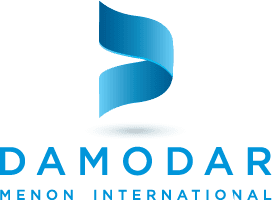To be deemed as one of the top textile company in India working with DMI, you must get yourself certified. The dynamic changes in the textile trading industry have made cotton buyers more careful about the quality and standard of the suppliers. An international certification can help suppliers like you show your buyers that you adhere to the industry quality standards and operate in compliance.
However, dozens of standards and certifications are available in the textile value supply chain. Knowing these standards and certifications will help you improve your business’s bottom line. Listed below are some of the main ones you can apply for your business, regardless of your business location, whether you are a textile company in India or another country.
International Organization for Standardization – ISO 9001 (2015)
The International Organization for Standardization is one of the widely used quality management systems created. For a supplier or manufacturer to receive ISO certification, they must fulfill all the quality, management, customer, and regulatory requirements, including implementing quality management systems in their operations.
DMI prioritizes and recommends suppliers with ISO certifications when clients approach us for cotton fabrics online in India.
Global Organic Textile Standard (GOTS)
GOTS is the world’s first testing standard for validating organic textile materials. It is mostly acquired by top textile companies in India and abroad that cater to cotton fiber and fabric manufacturing. Cotton buyers specifically enquire about this certification when they approach DMI for suppliers. This certification also provides consumer labels as well.
To be qualified for GOTS certification, a cotton supplier’s products must be at least 70% organic. They also have to meet stringent environmental, toxicological, and social criteria, besides quality assurance and management system criteria.
A manufacturer with this certification is highly regarded in the textile industry.
Fair Trade
This certification was created by World Fair Trade Organization and is dedicated to providing textile workers in developing countries with better wages and working conditions. Suppliers must implement fair trading practices to meet the standards across their entire supply chain process.
OEKO-TEX (Standard 100)
The OEKO-TEX certification tells the buyers that a manufacturer does not use harmful or low-quality substances in the manufacturing of their textile products. ECO Passport by OEKO-TEX is a worldwide consistent, independent testing and certification organization for fibers (raw), yarns (semi-finished), and fabrics (fully-finished) at different processing levels. The strictness of the ecological requirements that suppliers need to comply with changes based on the product’s skin-contact intensity.
Worldwide Responsible Apparel Production (WRAP)
WRAP, incorporated in 2000, is an independent non-profit organization that promotes safe, lawful, ethical, and humane manufacturing and supply of textile products through education and certification. WRAP-certified suppliers are recognized for upholding the social and ethical work standards of the countries they operate in.
Compliance with the law, prohibition of child labor, prohibition of forced labor, compensation and benefits, hours of work, health and safety, freedom of association, customs compliance, prohibition of harassment and abuse, prohibition of discrimination, environment, security, and hours of work are 12 principles that WRAP implements.
Cotton buyers that want to ensure that the workers who manufacture their products work in a safe environment must look for a WRAP-certified textile company in India.
BlueSign
BlueSign fosters responsible usage of raw materials and resources to ensure the lowest environmental impact. The certification standard is based on the principles of consumer safety, water and air pollution, reduction of harmful substances, and occupational hazard at different stages of textile production.
Top textile companies in India and abroad who want their final textile products to be eco-friendly and sustainably made while meeting customer safety standards must buy cotton fabrics online from Indian manufacturers with BlueSign certification.
Most suppliers associated with DMI use BlueSign-approved chemicals, which reduces risks and saves costs.
Zero Discharge of Hazardous Chemicals (ZDHC)
ZDHC in the textile industry value chain is applied to improve the quality of the environment and people’s well-being. Textile companies with ZDHC certification aim to treat or regenerate toxic and hazardous substances accumulated during the production process before releasing them into the environment.
Zero Discharge of Hazardous Chemicals is a multi-stakeholder organization comprising 170 contributors worldwide, including fabric suppliers, chemical suppliers, garment manufacturers, buyers, and solution providers.
When importing textile products from overseas suppliers, it could not be easy to ascertain their business practices and check whether they adhere to the ethical and eco-friendly practices they claim to impose. While DMI makes sure we associate with only trusted companies, certification by a reputed body is a good enough proof of compliance. It also gives cotton buyers the required validation for suppliers and manufacturers.
